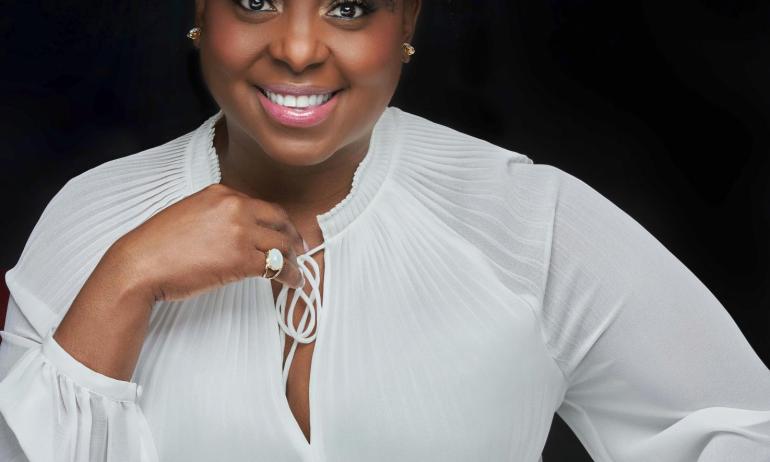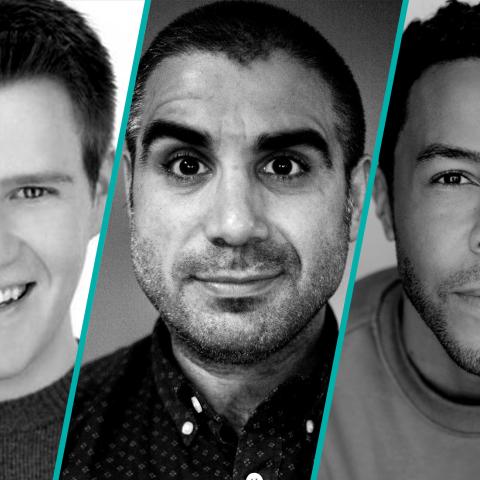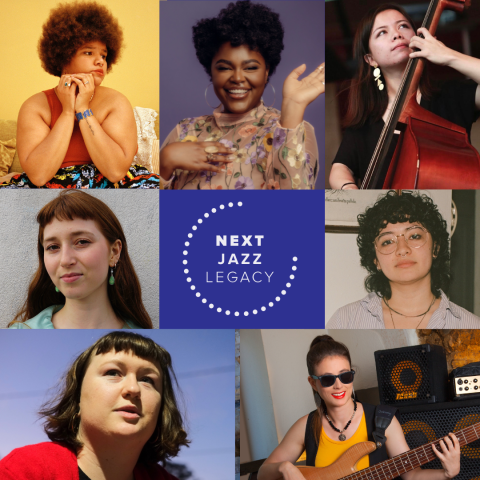Berklee Dean Joins Creative Team of Disney's Ariel

Image by Adam Renn Olenn
Sean Skeete, interim dean of the Professional Performance Division, has proven over the years that authenticity and integrity are essential for any successful musical venture. With this foundational belief, Skeete now takes on a new endeavor as part of the creative team for the newly announced Disney Junior series Ariel.
Following the success of Disney's live-action movie remake of The Little Mermaid, the new animated show, like the film, will spotlight a Black lead character and celebrate Caribbean culture. Skeete has been tapped to serve on Ariel's creative team as its Caribbean music consultant.
Born in Trinidad and Tobago, Skeete's musical journey began at the age of 3, playing songs at his father's church. He immersed himself in studying and practicing diverse genres, including Caribbean styles, jazz, and R&B. This dedication led to a full scholarship at Berklee, where he earned a degree in professional music. Over the past two decades, Skeete has shared stages with Take 6, CeCe Winans, Raul Midón, the Boston Symphony Orchestra, and the Boston Pops.
We had the opportunity to speak with Skeete about his new role, his views on representation and equity in mainstream art and music, and how he navigates these matters as both an educator and an artist at Berklee.
This interview has been edited for length and clarity.
Congratulations on earning the job for the new Ariel series. How did you become involved in the project?
I got connected through Berklee alum Trisha Hildebrandt [B.M. ’14], who has been working with a production team at Disney under the vice president of Disney Music. He reached out to me through Trisha’s recommendation looking for someone with expertise on Caribbean culture and Caribbean music.
Can you talk about what your role as a consultant entails?
I mostly help with the music, but also with the script…adding cultural context and also helping them with slang, foods, cultural practices, and that detailed information. Most of my work, about 75 to 80 percent, is spent working on music.
I’ve sent them over a hundred musical examples. Some from certain periods of Caribbean music, some from a certain isle, others in a certain style. I’m trying to give them a lot of ideas on how they can build out the big hits for the series, but also for the music in each scene. I’m suggesting different instrumentation, different tempo, a different type of feel, or using a more acoustic sound than an electronically produced sound. I’ve had fun offering that to the project.
Is this your first foray into this kind of work for a television show, movie, or other series?
This is my first experience [of this kind], and I’m hoping there will be other opportunities that follow. Knowing that my name would be on the screen and that I have influence, my question to [the Disney team] was “what does success look like?” They said “success is your imprint on the show.” I feel very comfortable and confident in what I’ve offered them based on my experience, because the hope was to give it a more authentic look and feel. They’re going to "Disney-ify" it for the young audience that they’re catering to…but nonetheless, being able to contribute a level of authenticity to the music and the culture, to be able to speak to the young people that they’re serving, that’s really rewarding and important. There was a lot of emphasis [by the Disney team] on not wanting this to be appropriation or a bad representation [of Caribbean culture]. My role is to try to help guide the creative process and avoid those stereotypes.
The new Little Mermaid movie has made headlines both positive and controversial for Ariel being portrayed by a Black actress, Halle Bailey. The Disney Junior animated series will also feature a Black female protagonist in the role of Ariel. Can you describe what it means to you personally to see this representation in a classic like The Little Mermaid?
My feelings [on this] can be complex at times. I think there should be more representation of people of color, but also in culture and [representation that is] not limited to certain types of roles and certain types of stories. We need more authenticity and more context [in representation], and a little less of the stereotypes of roles that we typically see Blacks and people of color in. For example, we do not see a lot of Black actors in epic films like Lord of the Rings and Harry Potter, these big blockbuster series. We have come a ways, but we have a ways to go. Disney has a particularly difficult history when it comes to racism and blackface, and I was actually hesitant to get involved knowing that history. But when I met with the producer, an African American woman, I saw her desire to make it more authentic and it really impacted me.
I think there are two sides of it. There’s the production and movie house side where they need to insist on telling these stories, doing them the right way, and offering them to the community. And from the public side, we need to be intentional about letting the movie houses know we want to see more representation.
Disney Junior’s Ariel highlights Caribbean culture, and the producers have pulled consultants with diverse backgrounds to make sure this is done right. From your lens as the interim dean of the Professional Performance Division, can you talk about the importance of diversity when it comes to creating meaningful musical projects and performances?
I think it’s the world that the students live in and will be going into, as the arts industry is very diverse. Students [when they enter Berklee] are coming into a space that’s very mixed, and they’re getting these experiences that are helping inform their creativity. They’re being exposed to music and ideas from all over the country and the world, and they’re learning about different cultures through music and how music reflects different cultural values. I know seeing that process has had an impact on me.
Then there’s the diversity of skills. Each style expresses the culture that it comes from and the values within that. Those are important things to know and learn as a songwriter, performer, or producer. The understanding of cultural backgrounds, and how music comes out of that, gives the performance value. You learn nuances and begin to understand styles at a deeper level. Then you can begin to mix and match and bring different ideas together. That’s all really important for a student’s education.
As an accomplished professional musician and educator, what do you see as your role when it comes to ensuring equitable representation and diversity within the community at Berklee and the larger entertainment industry?
I do think about this quite a bit. I do believe I have a responsibility, and that we as a community have a responsibility, to ensure there is equity and representation at Berklee. We owe it to the students because they deserve a world-class education that is inclusive and fosters a welcoming environment. I think about representation in our faculty, our staff, and the students we recruit. I think about it in terms of the curriculum we design and making sure students see themselves represented in the courses we offer. I think about equity in terms of the type of talent we attract to the school and paying artists equitably and giving them equitable access. We as leaders have to create a new norm in this environment. We can set community standards that are more aspirational and that we hold ourselves accountable to.
We might say that students have to have thick skin because the world they’re going to step into is rough and unfair at times, and that is a true statement. But that doesn’t mean we have to be an incubator or bastion for toxic behaviors. We need to be training and encouraging students to not only reject those ideas, but to enter the world as leaders and great citizens who will use their gifts to set new standards. You need resilience in life, yes, but let’s also aspire for a better standard and take that responsibility seriously.




